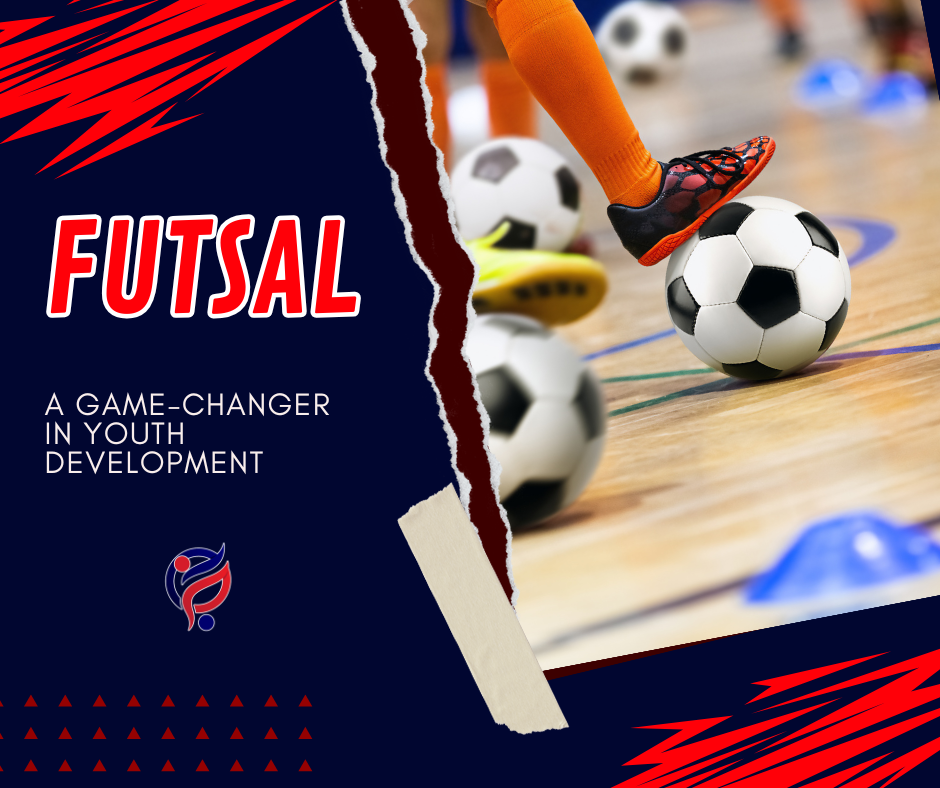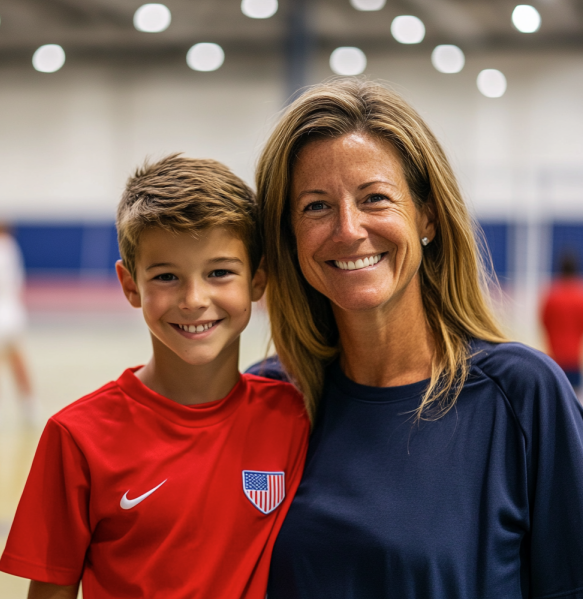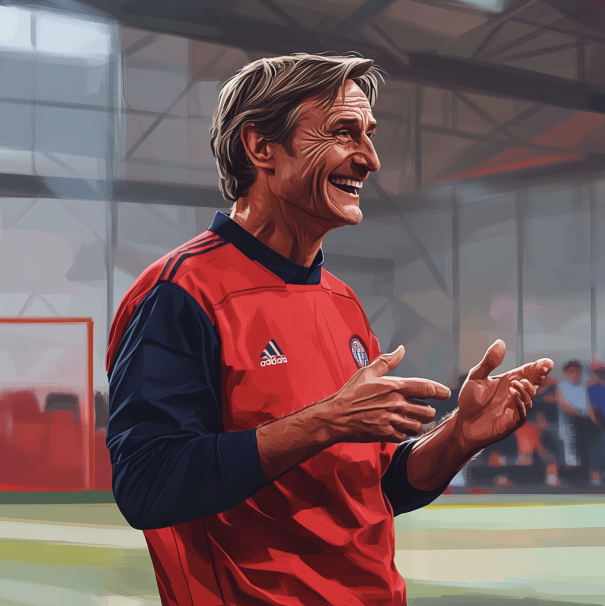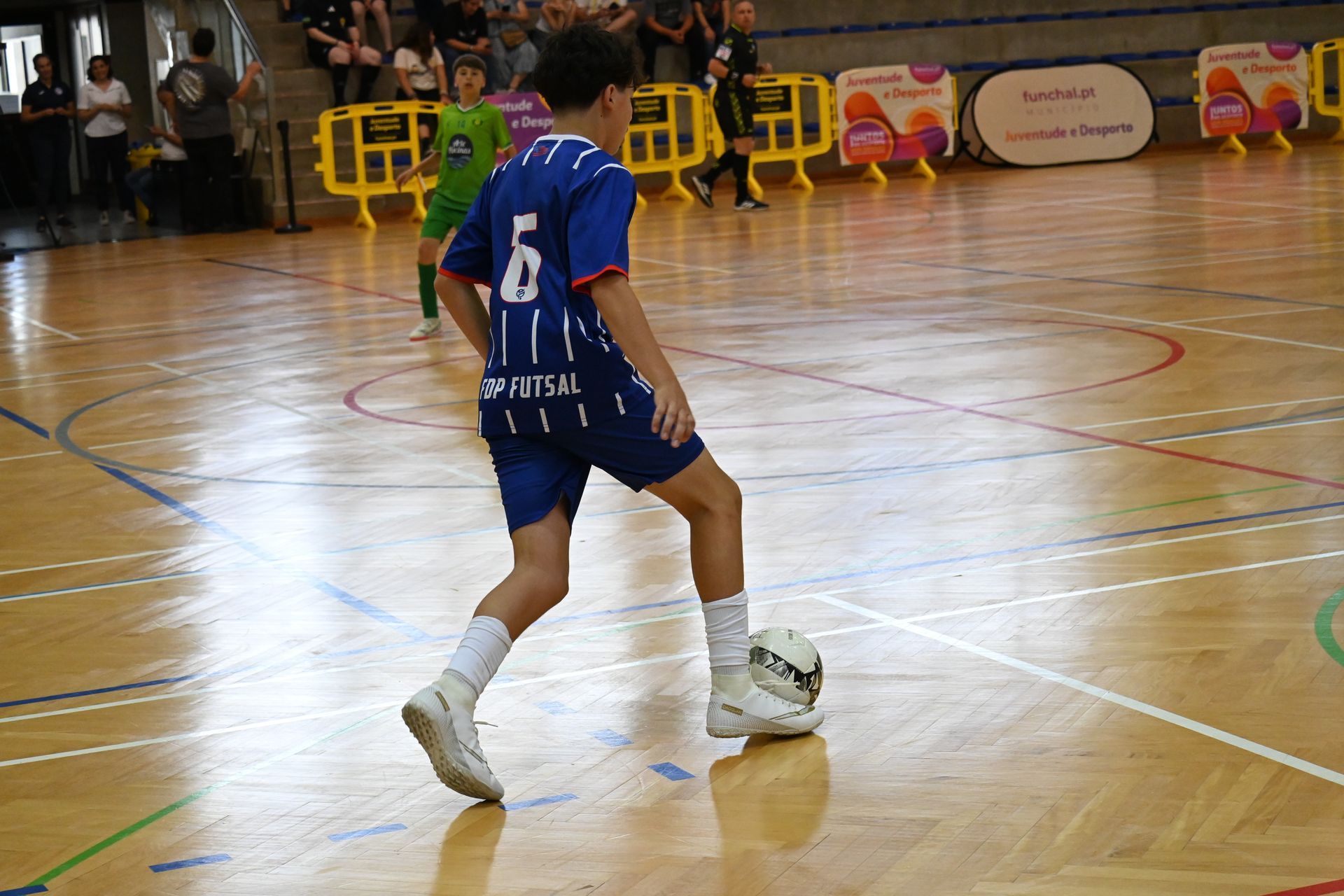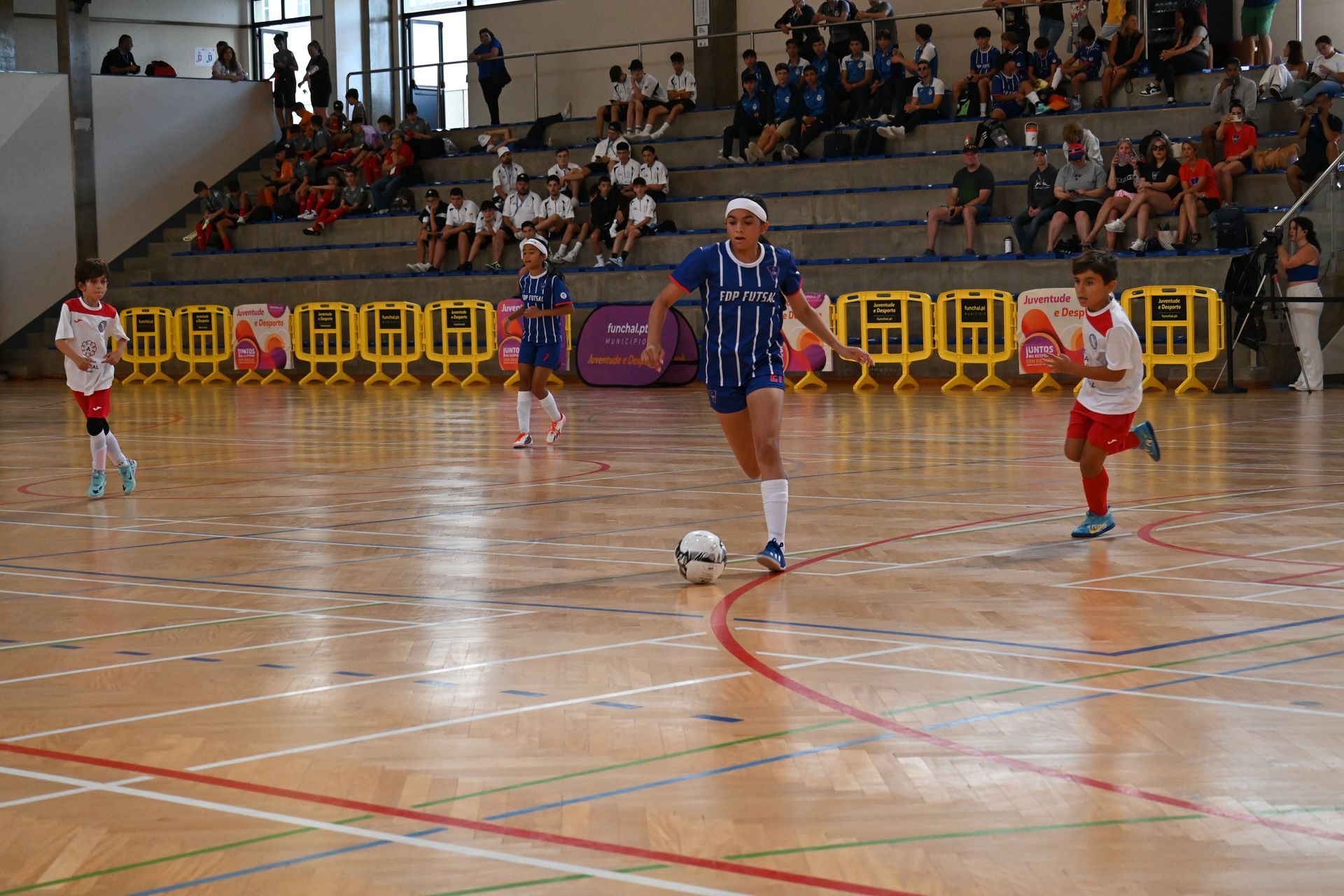France: A Rising Force in Futsal and Sports Dominance
France: A Rising Force in Futsal and Sports Dominance

In a recent article by Futsal Feed titled "Football and Sports Champions Will Shortly Dominate Futsal," the focus is on France's emergence as one of the biggest football and sports nations in the world. Despite entering the world of futsal relatively late compared to European powerhouses such as Spain, Italy, and Portugal, France has made significant strides in developing a futsal model that has the potential to revolutionize the sport.
This article explores the reasons behind France's delayed entry into futsal, highlights the steps taken by the French Football Federation (FFF) to create a futsal model, and emphasizes the impact of ACCS Paris, one of the best clubs in France, signing Portuguese superstar Ricardinho.
Additionally, we will identify five lessons that can be learned from France and applied in America to enhance the development of futsal and create opportunities for young soccer players.
- France's Late Entry into Futsal:
France's focus on football has historically been centered around the outdoor version of the game, and the country's success on the global stage is a testament to their footballing prowess. However, it took some time for France to recognize the potential of futsal as a complementary sport that could enhance player development and tactical understanding. While countries like Spain, Italy, and Portugal had embraced futsal earlier, France's entry was relatively delayed.
2. Steps Taken by France (FFF) to Create a Futsal Model:
Despite the late start, the FFF has been proactive in establishing a futsal model in France. Here are five key steps they have taken:
a. Strategic Partnerships: The FFF has formed strategic partnerships with professional futsal clubs, universities, and grassroots organizations to promote the sport at all levels. These collaborations have facilitated the sharing of knowledge, resources, and infrastructure.
b. Player Development Programs: The FFF has implemented comprehensive player development programs specifically tailored for futsal. These programs focus on technical skills, tactical awareness, and fostering a strong futsal culture at the youth level.
c. Coaching Education: The FFF has invested in coaching education to ensure the availability of qualified futsal coaches across the country. This emphasis on quality coaching has been instrumental in nurturing talent and improving overall standards.
d. Infrastructure Investment: The FFF has recognized the importance of investing in futsal-specific facilities and infrastructure. This includes the construction of dedicated futsal arenas, training centers, and the provision of high-quality equipment.
e. International Exposure: The FFF has actively sought opportunities for French futsal players to participate in international competitions and friendly matches. These experiences provide invaluable exposure to high-level competition and help raise the overall standard of play.
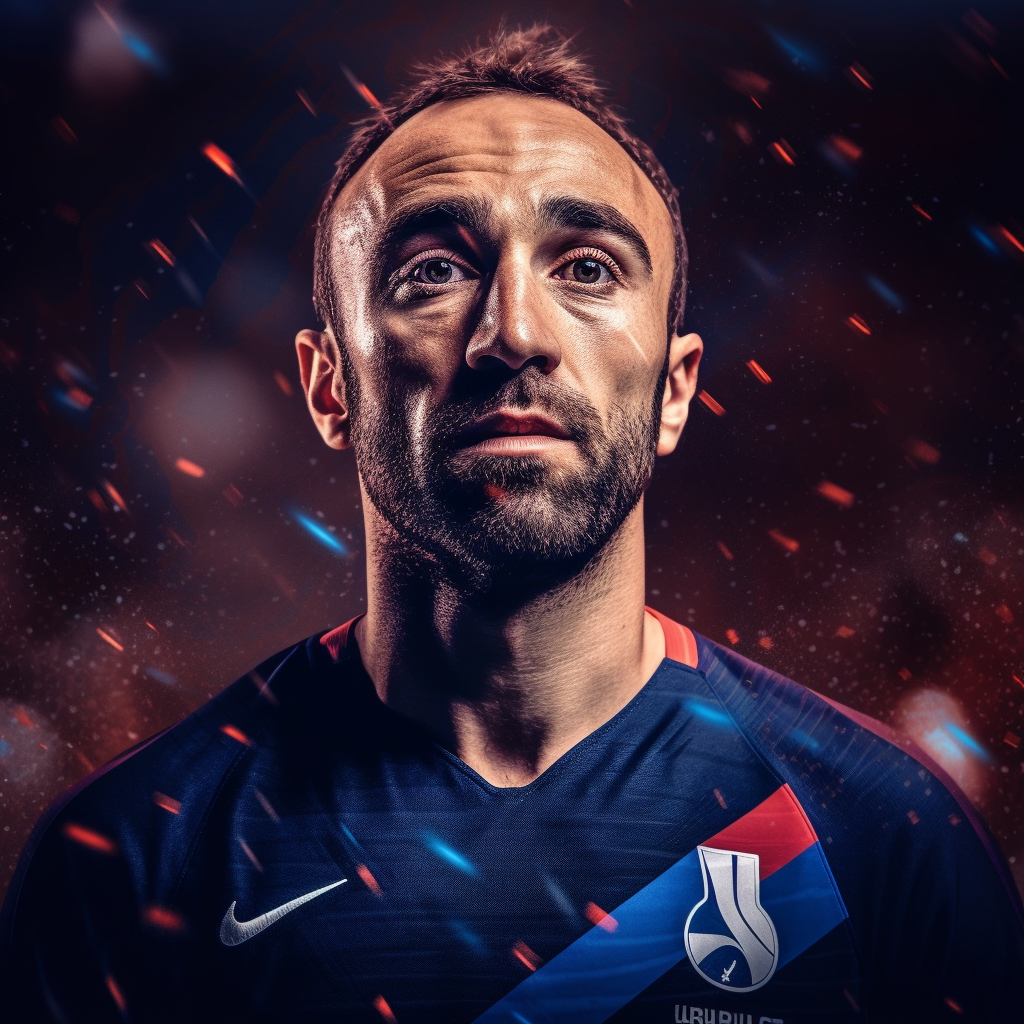
3. Impact of ACCS Paris Signing Ricardinho:
The recent signing of Portuguese superstar Ricardinho by ACCS Paris, one of the top futsal clubs in France, has had a tremendous impact on the sport. Ricardinho is widely regarded as the best futsal player in the world and his presence in the French league not only attracts global attention but also raises the profile of futsal in the country. This signing serves as a statement of intent by ACCS Paris and highlights the growing competitiveness and ambition of French futsal.

4. Lessons from France for Futsal Development in America:
Recognizing the opportunities that futsal presents for the development of young soccer players and their subsequent progression to collegiate, MLS, and international levels, here are five key lessons that can be learned from France and applied in America:
a. Embrace Futsal Culture: Promote the establishment of a futsal culture by integrating futsal training and competition into existing soccer programs and leagues. This will allow players to develop their technical skills, decision-making abilities, and understanding of the game in a more confined and intense environment.
b. Investment in Infrastructure: Allocate resources to develop futsal-specific facilities across the country. Dedicated futsal arenas and training centers equipped with proper playing surfaces and infrastructure will provide the ideal environment for players to hone their skills and compete at a high level.
c. Coaching Development: Invest in coaching education programs that focus on futsal-specific training methodologies, tactics, and player development. By training and certifying coaches with expertise in futsal, the quality of coaching will improve, leading to better player development and overall growth of the sport.
d. Collaboration with Soccer Clubs: Foster partnerships and collaborations between futsal and soccer clubs. This will allow for the exchange of knowledge, resources, and talent between the two sports, creating a seamless pathway for players to transition between futsal and soccer and maximizing their potential in both disciplines.
e. International Exposure: Provide opportunities for American futsal players to compete in international tournaments and friendly matches. Exposure to high-level international competition will not only enhance the players' skills but also raise the overall standard of futsal in the country.
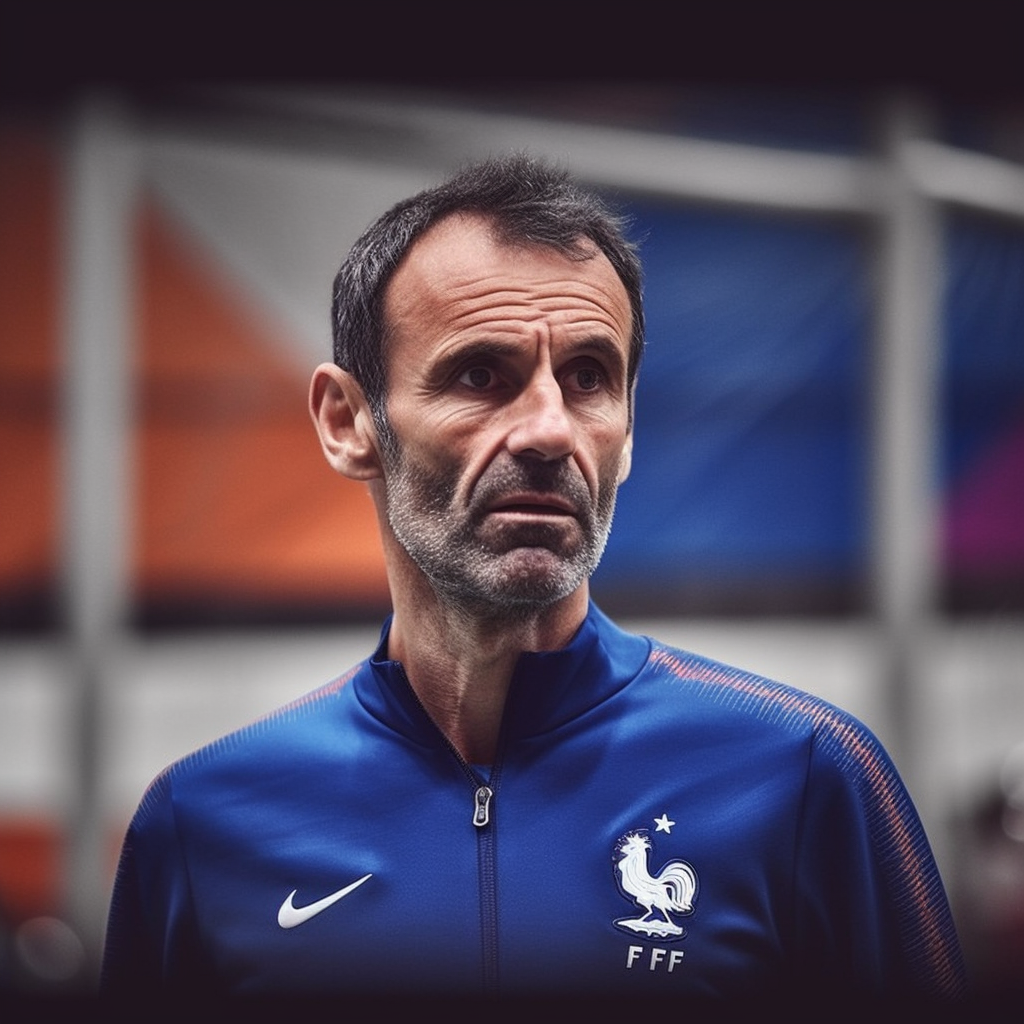
Raphaël Reynaud, the coach of the France U19 squad and one of the main architects of the futsal development program in France, emphasizes the integration of futsal within the national-wide football development program. According to Reynaud, all young players in France, until the age of 14, participate in both football and futsal simultaneously. This approach ensures that every young footballer is exposed to futsal, and when they reach 14 years old, they have the option to choose between pursuing football or futsal.
Here are five common misconceptions about futsal that American youth soccer parents may have and how to dismiss them:
- Futsal is just a recreational activity: Futsal is not merely a recreational activity but a highly competitive and skill-intensive sport. It demands technical proficiency, quick decision-making, and tactical awareness. It provides a unique platform for players to develop their individual skills and enhance their overall understanding of the game.
- Futsal is not as physically demanding as outdoor soccer: Futsal requires exceptional agility, speed, and endurance. The smaller pitch and reduced number of players intensify the pace and frequency of the game, making it physically demanding. Players constantly transition between attacking and defending, engaging in quick bursts of acceleration and deceleration.
- Futsal hinders soccer development: On the contrary, futsal complements soccer development. The skills and techniques acquired in futsal, such as close ball control, precise passing, and spatial awareness, transfer seamlessly to the outdoor game. Futsal sharpens players' technical abilities and decision-making skills, enhancing their overall soccer performance.
- Futsal is not as strategic as outdoor soccer: Futsal is a highly strategic sport that requires players to think quickly and make split-second decisions. The limited space and reduced time on the ball force players to be creative, develop effective team strategies, and execute precise movements. The tactical aspects of futsal greatly contribute to a player's overall understanding of the game.
- Futsal is not recognized at higher levels of soccer: Futsal is gaining recognition and importance at higher levels of soccer. Many professional soccer clubs and national teams now actively integrate futsal into their player development programs. The technical skills, game intelligence, and decision-making abilities developed in futsal translate well to the outdoor game, making futsal experience highly valuable for aspiring soccer players.
France's under 19 generation, which played at Futsal Week in Poreč, is a prime example of the success of their futsal development program. This generation is the first to be entirely composed of players from the pool of specific futsal players, highlighting the effectiveness of the program. These players train throughout the year in a specialized futsal school, dedicating themselves exclusively to futsal. Their training regimen includes twice-daily sessions, demonstrating their commitment and focus on the sport.
Reynaud expresses ambition not only for this particular generation but also for the overall process of futsal development in France. He expects to see significant results from this plan within five or six years. This long-term approach, combined with the integration of futsal within the national-wide football development program, exemplifies France's commitment to nurturing young futsal talent and ensuring the continued growth and success of the sport in the country.
Conclusion:
France's entry into the world of futsal may have been delayed compared to other European countries, but the nation has quickly made up for lost time. Through strategic partnerships, player development programs, coaching education, infrastructure investment, and international exposure, France has successfully established a futsal model that is poised to revolutionize the sport. The signing of Portuguese superstar Ricardinho by ACCS Paris further validates the progress made by France in futsal and highlights the growing ambition and competitiveness within the country.
For America, there are valuable lessons to be learned from France's futsal development model and FDP Futsal is a pioneer in bringing continuous education to the NJ area youth soccer families. By embracing futsal culture, investing in infrastructure, focusing on coaching development, fostering collaboration between futsal and soccer clubs, and providing international exposure for players, America can enhance the development of futsal and create opportunities for young soccer players. This integrated approach will not only improve the standard of futsal but also open doors for players to excel in collegiate, MLS, and international soccer levels. By following in the footsteps of France, America can tap into the immense potential of futsal and propel the sport to new heights.
Provided By: Niko Alexopoulos
DON'T MISS ANY BLOG POSTS
Unlock Exclusive Insights: Subscribe Now & Stay Ahead of the Curve! Don't Miss a Single Blog Post—Join Our Community for Expert Tips, Fresh Perspectives, and Insider Knowledge. Your Ticket to Stay Informed, Inspired, and Empowered Awaits!
MAXIMIZE YOUR POTENTIAL
Empower Your Journey: Subscribe for Exclusive Access to Training, Programs, Camps, and Events. Elevate Your Skills and Seize Every Opportunity!

